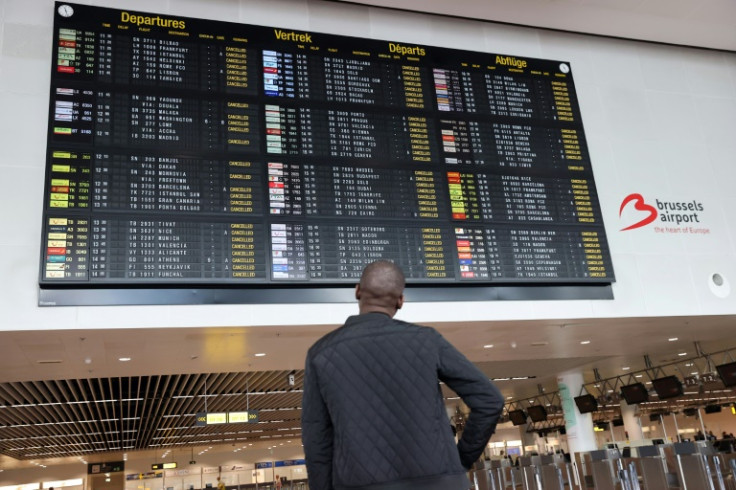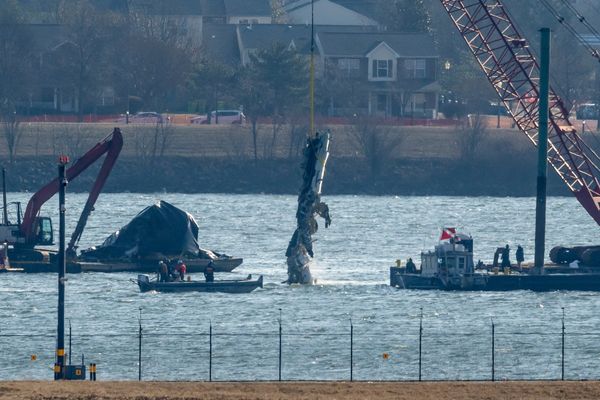
Passengers across the United Kingdom are bracing themselves for nine days of widespread rail disruption as Aslef, the train drivers' union, initiates industrial action.
Commuters are set to face unprecedented challenges as services are severely impacted, sparking concerns about the economic toll and the broader implications for public transportation.
The Aslef industrial action, characterised by strikes and work-to-rule measures, comes as a culmination of prolonged negotiations between the union and rail operators.
Disputes over working conditions, pay disparities and concerns regarding safety protocols have failed to find a resolution, leading to this protracted period of industrial unrest.
Industrial action by drivers is set to impact train operating companies (TOCs) contracted to the Department for Transport. The strikes are scheduled for 24 hours at each TOC, occurring on various dates between Saturday, 2 December, and Friday, 8 December.
This action will halt the majority, if not all, train services at the affected operators in England, with some cross-border services to Scotland and Wales also affected.
In addition to the strikes, drivers will abstain from working overtime from Friday until Saturday, 9 December. This heightens the potential for disruption at operators heavily dependent on rest-day work.
Major routes connecting key cities and towns are anticipated to experience significant disruptions, affecting both business and leisure travellers alike.
Aslef, representing a substantial portion of train drivers, asserts that the industrial action is a necessary response to the failure of negotiations to address their members' concerns adequately.
Safety concerns, in particular, have been a focal point, with the union demanding enhanced safety protocols and working conditions for its members.
Mick Whelan, General Secretary of Aslef, stated, "Our decision to go on strike again is not aimed at inconveniencing passengers but is a direct response to the government's intransigence and the lack of good faith displayed by the private companies that employ us.
"It is evident that the Tory government is not genuinely interested in resolving this dispute. Despite our willingness to come to the negotiation table, the Train Operating Companies (TOCs), backed by the Tories, seem disinterested. This has transformed the issue into a political rather than an industrial dispute.
"They seem content to let this conflict persist, causing suffering for passengers and businesses, and leading to the managed decline of Britain's once globally admired railways."
Whelan emphasised that Aslef had received overwhelming mandates from its members since April to continue the strike action.
Before the current action, drivers had already participated in 14 one-day strikes nationwide since July 2022 and approximately six weeks of overtime bans.
In response, Transport Secretary Mark Harper accused the union of hindering its members from having a say on the proposed offer, which aims to increase train drivers' median salaries from £60,000 to £65,000 for a 35-hour, four-day week.
Harper urged Aslef to follow the example of the RMT and allow their members to express their views on the offer.
The consequences of the industrial action extend beyond inconvenienced commuters. Businesses that depend on a reliable and efficient transportation network are expected to face logistical challenges.
The economic repercussions of such prolonged disruptions are yet to be fully realised, raising questions about the sustainability of industrial action in essential services.
A spokesperson for the Rail Delivery Group representing train operators, said: "We want to reach a fair agreement which will get more trains running on time and put the railway on a sustainable footing.
"At a time when taxpayers are contributing an extra £54m a week to keep services running post-Covid. Instead of staging more damaging industrial action, we call on Aslef to work with us to resolve this dispute."
As the nation grapples with the unfolding rail disruption, attention is increasingly focused on the resilience of public services and the need for effective mechanisms to resolve industrial disputes without compromising the daily lives of citizens.
The coming days will undoubtedly test the patience and adaptability of commuters as they navigate the challenges posed by this unprecedented industrial action.







